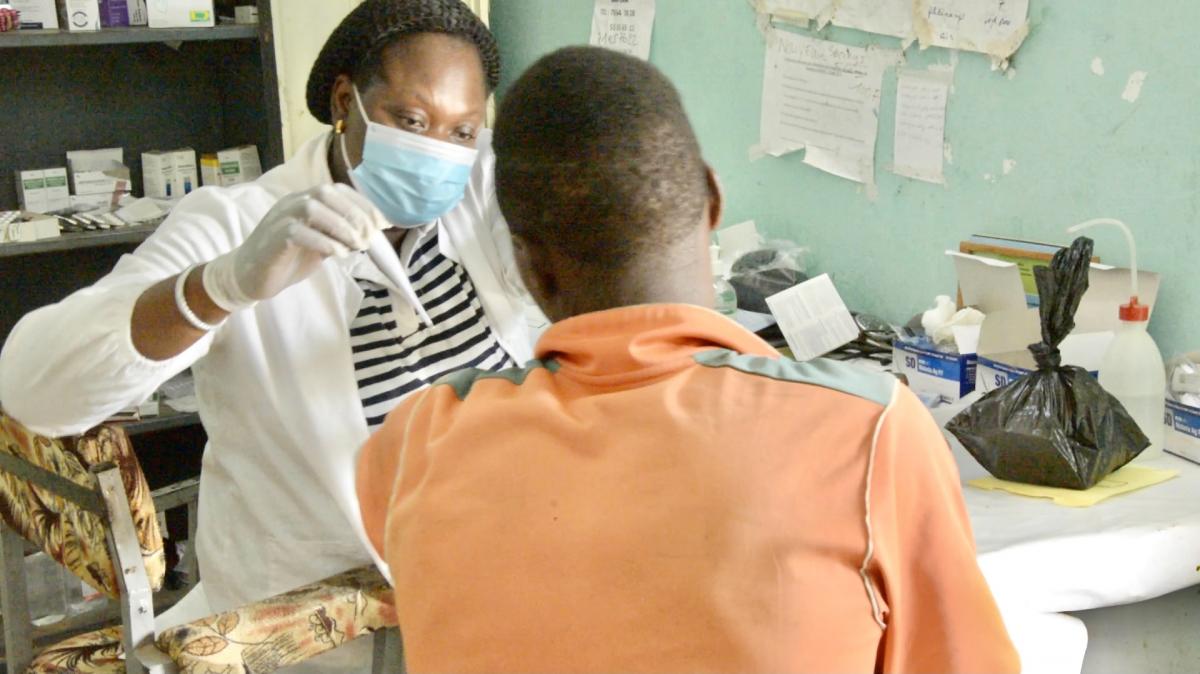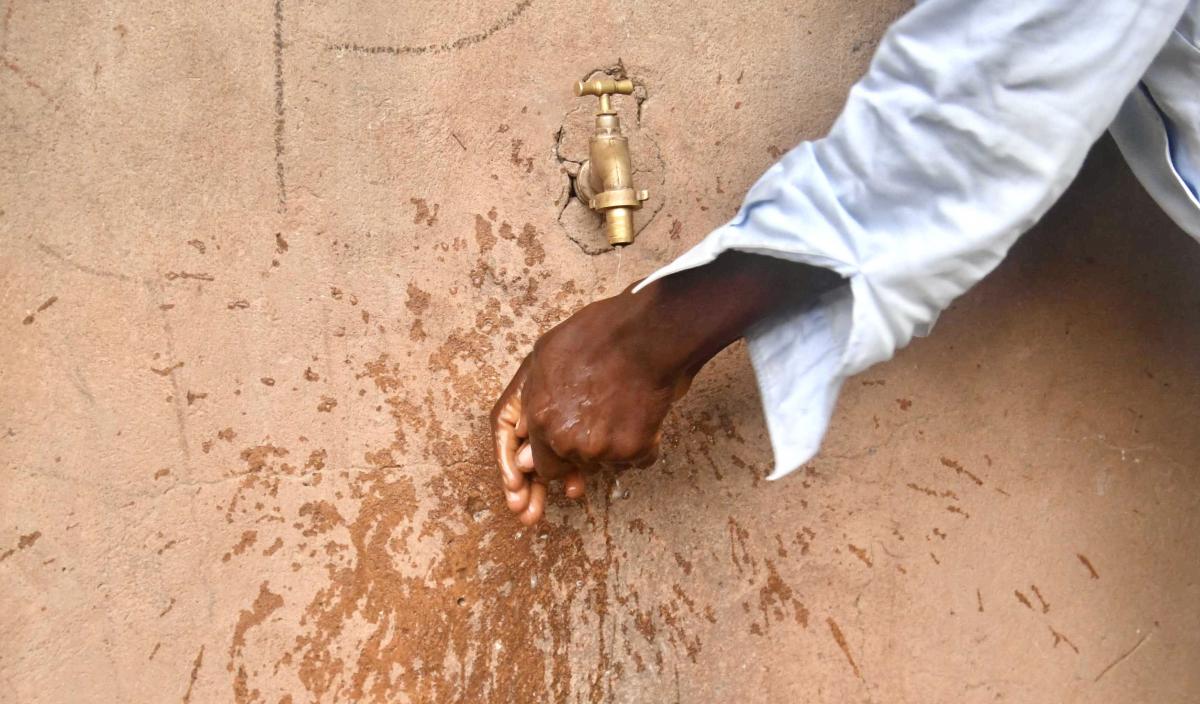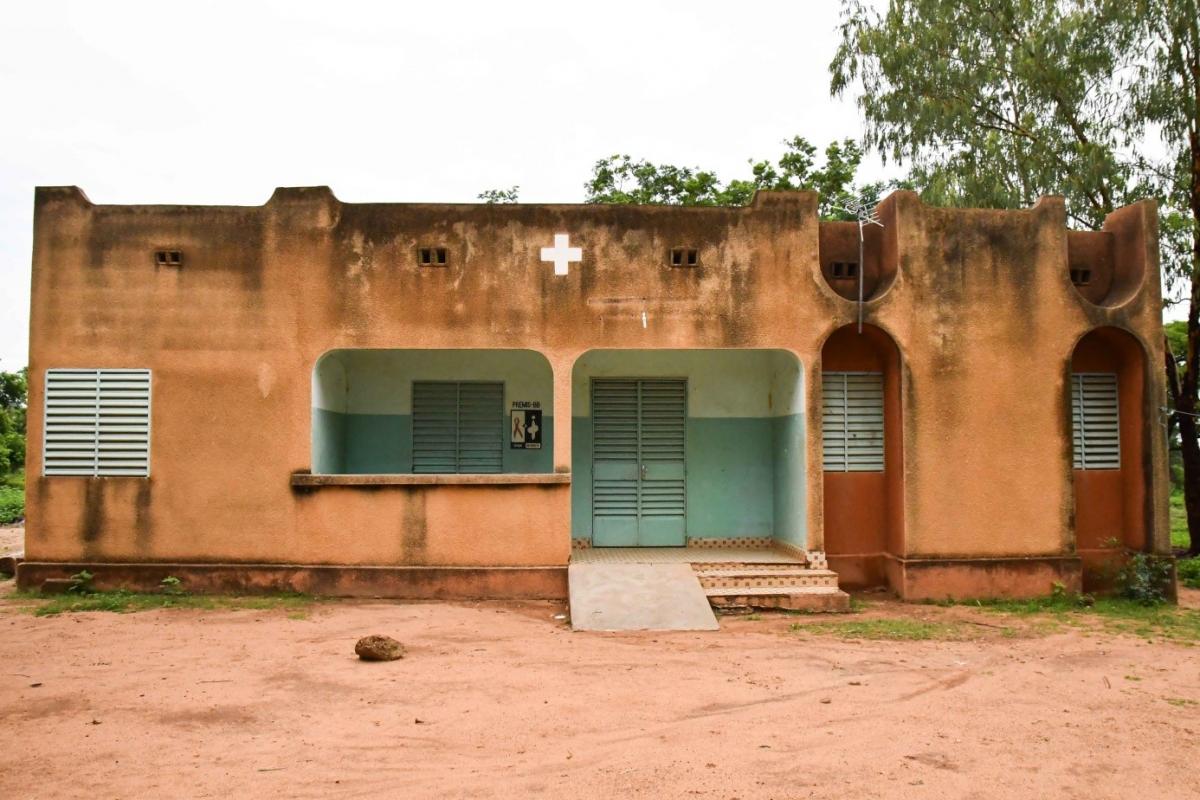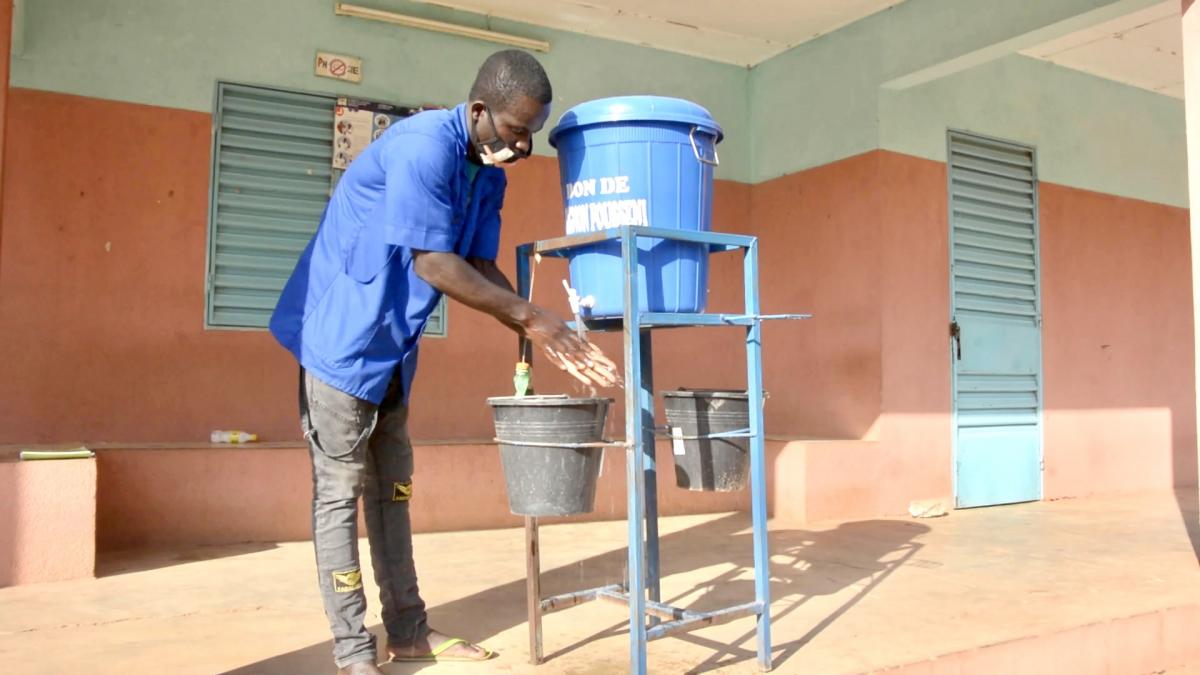
"I am calling on WASH and health professionals to change the way we address hygiene promotion", says Juste Nansi, Country Director IRC Burkina Faso.
Published on: 04/05/2021
An Interview with Juste Nansi by Vera van der Grift [IRC]
“Most handwashing promotion interventions in developing countries are short-term campaigns. This cannot sustain the expected results. It is a challenge that a number of operators in this field are facing,” says Just Nansi Country Director IRC Burkina Faso in this interview.
IRC, together with its partners in Burkina Faso, initiated a hand hygiene campaign in response to the COVID-19 pandemic. This addressed risks of COVID infection as well as other still pervasive diseases related to inadequate hygiene. The campaign ran for a period of 6 months from September 2020 to February 2021 and had to stop due to funding limitations. I am concerned that the impact may be compromised since behaviour change requires a long-term strategy and this was a short-term campaign.

Handwashing is the simplest most effect public health intervention. Healthcare worker in Banfora washes their hands to keep their patients and themselves safe.
Hand hygiene promotion is not a new challenge in Burkina Faso. The country suffered from the Ebola outbreak in the past and promoted hand hygiene then. The campaign ran only during the outbreak and stopped as soon as Ebola was under control. A few months later, we could see a reduction in good handwashing practices in public spaces. There was no longer any obligation to wash hands at the entrance to shops or offices. Banks no longer offered hydro-alcoholic gels and there were no posters anymore at the entrances of churches, mosques, schools, etc. to remind users of good behaviour. This matches research findings that emergency-induced changes in hand hygiene are seldom sustained (see for example Manning et al., 2011).
When COVID broke out a new hand hygiene promotion campaign was started. From the start, we knew that like with the Ebola experience when behaviour change messages are not promoted persistently and continuously, people revert to their past behaviour quite quickly. In addition, focusing hand hygiene on only one disease outbreak, wrongly diverts attention away from the other permanent risks linked to the many other hand hygiene-related diseases. We knew that the campaign must be persistent and permanent if hand hygiene is to be properly adopted and sustained – and not restricted to pandemic episodes or threats. However, financial constraints bring us back to the same challenge, with the campaign stopping after only 6 months.
Hand hygiene campaigns are still conducted in the western world even though awareness of hygiene benefit has been high for decades. This affirms the need to conduct behaviour change campaigns in low-income countries, where hand hygiene is often poor, as long-term interventions that are not restricted to periods of threats. It is important that we improve our level of readiness for these threats in developing countries.

Facade health center of sector 8 in Banfora
There are so many other diseases linked to poor hand hygiene and these are also killing people – not as fast as pandemics but they are damaging to people’s health. We are not counting these because we have been used to living with these diseases in Africa. It is only when hygiene-related specific epidemics affect many countries that hand hygiene interventions are promoted.
Hygiene promotion is not planned as a systemic health response. It often happens as an emergency response to one specific epidemic. As soon as the health crisis is controlled, the campaign stops, and the same vicious cycle continues as we have witnessed with the cholera outbreaks. Hand hygiene promotion is often successful during epidemic outbreaks, but it does not lead to the development of sustained systems for public health. Things are not changing either because sector professionals and donors do not learn from previous failures and rarely prioritise hand hygiene behaviour promotion as a central part of health system interventions, despite the demonstrated cost-effective health benefits.
Changing human behaviour is complex. This is true not only in Africa but also in high-income countries where handwashing is still promoted. The long-term behaviour change approach has been consistently used for HIV/AIDS over the past 30 years – regardless of the drop in infections, registered changes in behaviour, or even research developments. The same applies for malaria prevention. Not having a long-term promotion approach for hygiene demonstrates weakness in the WASH sector and the health sector in general – where hygiene is clearly neglected.
We do not need to show evidence of the impact of poor hygiene on the health sector. The benefits of good hygiene are well demonstrated as are the consequences of poor hygiene. This is a health systems quality issue at the country and global level in terms of financing, guidelines, approach, and logic. There is a lack of attention to long-term hand hygiene promotion and little acknowledgement that short-term hand hygiene solutions have limited effectiveness.
UNICEF has highlighted hand hygiene promotion and raises awareness about the need. I am urging UNICEF to join IRC to scale up and ensure long-term, massive, and consistent interventions. I am not saying that short-term campaigns are not effective, but long-term interventions achieve more lasting results. The current interventions are not even national and are limited to specific areas targeting a few villages, disregarding the mobility of people. The campaigns should be massive and countrywide, using multiple communication channels – just like the HIV/AIDS and malaria campaigns. We should learn from these good practices and adopt them for hygiene promotion. While what UNICEF has done is exceptionally good, we still need to do a lot more to reach the same level of the health campaigns for the WASH sector.
Short-term campaigns can be powerful such as the six-month campaign we conducted in Burkina Faso. We used various channels (billboards, TVs, washing places, schools, etc.) and we have seen people adopt hand hygiene practices effectively. The challenge is that we have wound down the activity with no resources left to sustain the messages. Behaviour change will decrease after one to three months if people do not hear the messages, and this is natural human behaviour. Even in developed countries, people need to be reminded of the need for hand hygiene. People know the benefits of handwashing and handwashing facilities, but they need to be reminded regularly to sustain the good practice.

Health care worker washes hands at station made possible by IRC Burkina Faso led hygiene interventions in Tingrela, Banfora.
First, there is the content – the messages need to come from the environment people are living in and they need to be able to remember them. The messages, the communication materials and content, all need to be of good quality and contextualised. They need to look at specific cases and specific solutions adapted to the local context and the challenge.
Second are the channels used. The channels should reach a massive number of people. Where possible, direct engagement should be used (interpersonal contact). Indirect channels such as radio, TV, social gatherings, places of worship and public events are also essential.
The third is frequency. For behaviour change to happen, people need to hear the message frequently (daily), and at the right times such as before meals.
Fourth is language. While Burkina Faso has a number of official languages, very few people understand them. All local languages should be used to reach the population being targeted by the campaign.
The above are key lessons and key ingredients from our successful Clean Hands, Good Health campaign.

One of 400+ billboards spread throughout Ouagadougou and Banfora for the Mains Propres, Bonne Sante campaign that reached 2.8 million in Burkina Faso.
Donor interventions are still linked to pandemics as this is when they feel the need to act. There is a need for a paradigm shift on the part of donors on investing in long-term interventions. While short-term interventions are effective in addressing epidemics and pandemics when they are happening, they are not effective from a prevention perspective.
Showcase remarkable results of successful interventions. Help people to imagine what will happen if nothing is done and the importance of sustaining good behaviour. Countries and country systems should also be alerted to the problem. Raising the message in relevant platforms about addressing the problem through long-term not short-term investments. While donors that have funded past campaigns are commended, they could have done a better job if they had invested consistently over the long-term as they did with HIV/AIDS and malaria.
Edited by Tettje van Daalen [IRC]
Reviewed by Angela Huston and Cor Dietvorst [IRC]
At IRC we have strong opinions and we value honest and frank discussion, so you won't be surprised to hear that not all the opinions on this site represent our official policy.